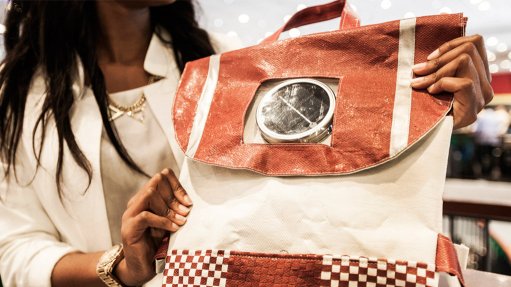
A Rustenburg-based company that converts upcycled plastic bags into solar panel school bags that charge while children walk to school and act as a light source to enable them to to study at night has been featured on international news organisation CNN’s ‘African Start-Up’ programme.
Rethaka cofounders Thato Kgatlhanye and Rea Ngwane, who won third place in the 2013 South African Breweries Foundation Social Innovation Awards, receiving $30 000 to kick-start their business earlier this year, outlined that the repurposed school bag had been designed to meet dual education and energy-related needs.
“It's actually made from 20 plastic bags that are upcycled into a textile and we have also integrated a solar panel because the kids that we are trying to serve go home and have [no] electricity to study.
“So while these kids are walking to school, we give them something that can help them later on. All the kids need to do when they get back home is slip the solar panel off the bag and put it onto a jar that is supplied, connect the switch to the solar panel and then they have a light source to use at night,” Ngwane explained.
Rethaka sourced the plastic bags used in the product from schools, households and landfills, after which they went through a washing and sorting process to remove dirt.
The bags then underwent a brand removal process and were hung to dry before being taken to a station where they were cut, ironed and sown into sturdy school bags.
“Business is amazing, we've managed to do our prototyping phase, piloted our first school and [made] 128 bags. We've had great clients that have come on board to support us by placing orders,” added Kgatlhanye.
Following its successful start, Rethaka now employed eight people.
“I see our bags definitely going beyond the borders of South Africa and reaching other African countries and other developing continents such as Asia, and making that much of an impact,” Ngwane concluded.